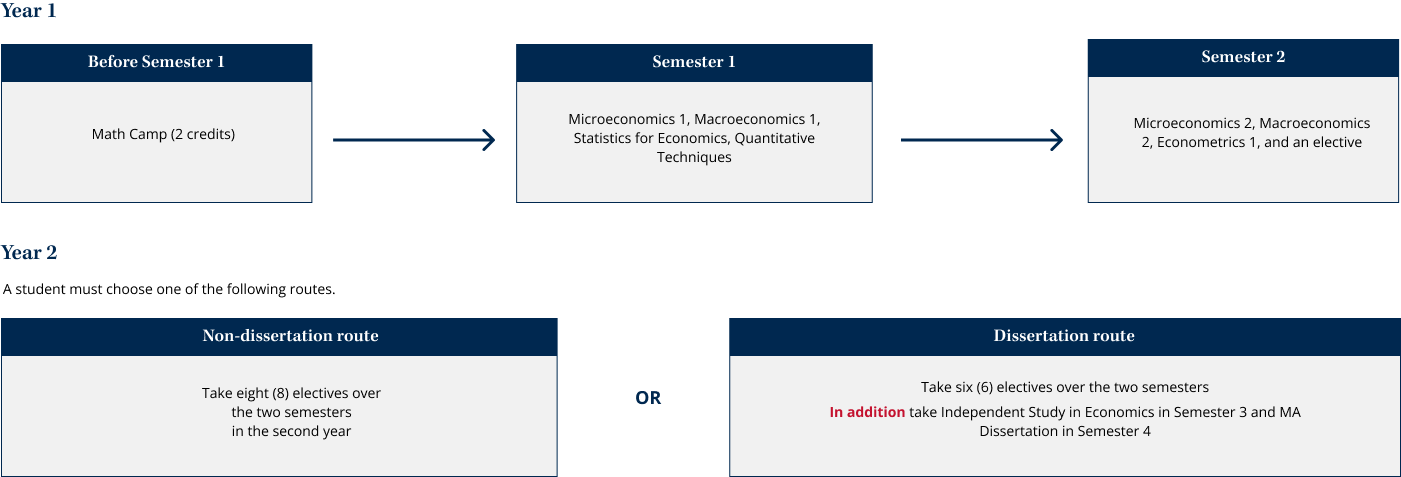Course Structure
The Ashoka approach to Economics is fundamentally about bringing together cutting-edge economic theory and rigorous data analysis to address questions at the frontiers of research. The Masters Programme in Economics has been developed with this perspective. It will provide students not only the opportunity to be trained by highly qualified economists but also to leverage Ashoka’s growing stature and expanding networks to shape their careers, whether it be in the academy or beyond.
The Master of Arts in Economics programme is a two-year, four-semester programme. Students will study 7 compulsory courses and an elective in the first year and at least 8 electives (or its equivalent) in the second year. Before the beginning of the first semester, students will attend a mandatory Math Camp to brush up their quantitative skills. In the first year, students grow deep roots in the foundations of modern economics as they are provided with a rigorous introduction to microeconomics, macroeconomics and econometrics. In addition, they take a course which advances their understanding of quantitative techniques. This rigorous training prepares them for the more research-focused and specialised elective courses that they have to choose from in the second semester and later in their second year. The goal of these courses is to allow the students to develop an appreciation of what the current research frontier in economics looks like.







